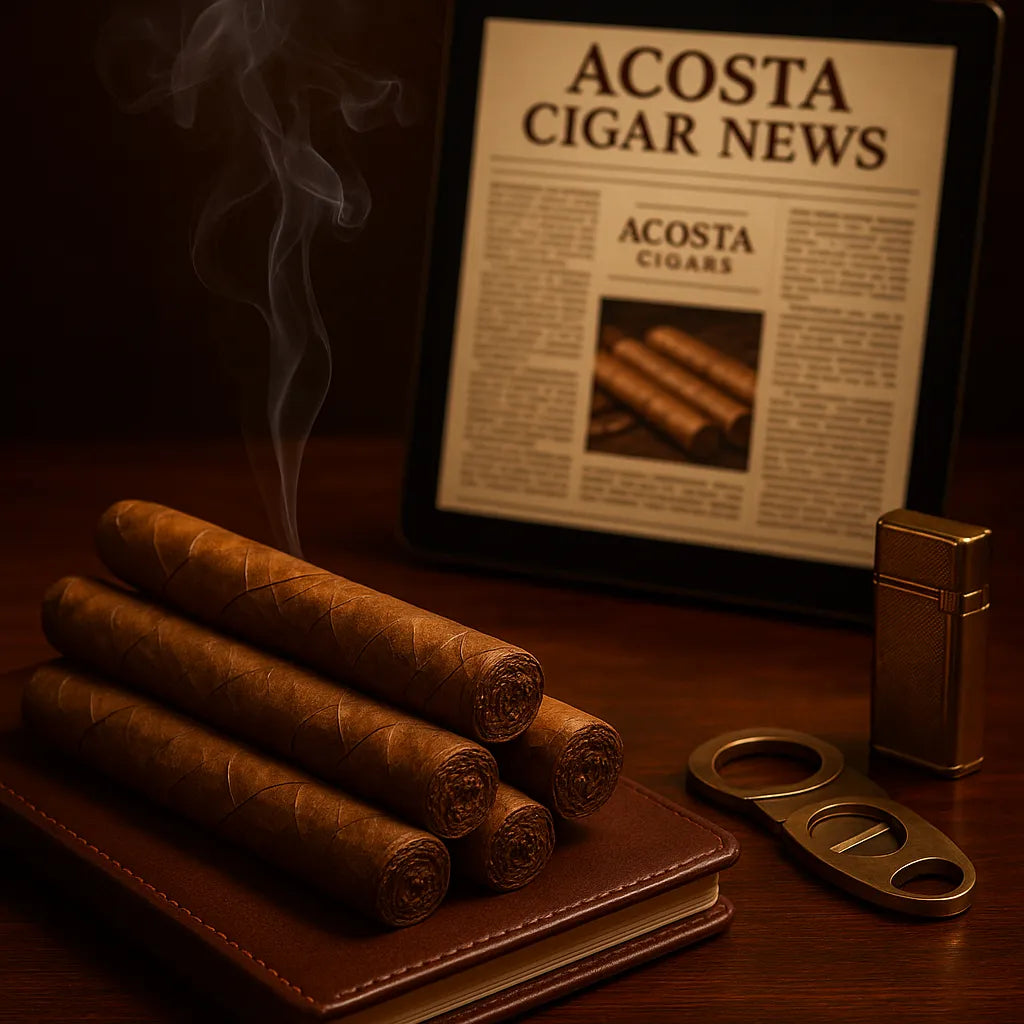
Nicaragua Could Face 100% Tariffs: What Does This Mean for the Premium Cigar Industry?
Share
The United States is on the verge of imposing tariffs of up to 100% on all imports from Nicaragua—a move that could send shockwaves through the global premium cigar industry. As the White House and the Office of the US Trade Representative (USTR) weigh this unprecedented measure, industry stakeholders, retailers, and cigar aficionados are bracing for dramatic changes in pricing, supply, and market dynamics.
Why Is the U.S. Considering 100% Tariffs on Nicaragua?
The proposed tariffs are part of a broader U.S. response to Nicaragua’s labor and human rights policies, which the U.S. government has deemed in violation of international norms and expectations for trade partners. The USTR’s proposal, which could be implemented immediately or phased in over 12 months, is designed to pressure the Nicaraguan government to improve its record on these issues. In addition to tariffs, the U.S. is considering suspending Nicaragua’s benefits under the Central America-Dominican Republic Free Trade Agreement (CAFTA-DR), which currently provides preferential access to the U.S. market for many Nicaraguan goods.
Nicaragua’s Dominance in the Premium Cigar Market
Nicaragua is not just another player in the premium cigar world—it is the leader. For five consecutive years, Nicaragua has exported more handmade, premium cigars to the United States than any other country, surpassing traditional giants like the Dominican Republic and Honduras. In 2023, Nicaragua shipped 253 million handmade cigars to the U.S., accounting for nearly 60% of all U.S. handmade cigar imports. The country’s rich volcanic soil, skilled craftsmanship, and innovative cigar makers have made Nicaraguan cigars some of the most sought-after in the world.
The Economic Stakes
The premium cigar industry is a cornerstone of Nicaragua’s economy. In 2023, the country exported over $425 million worth of cigars, cheroots, cigarillos, and cigarettes, with the U.S. absorbing the vast majority of these exports. Cigars and related products make up nearly 6% of Nicaragua’s total exports, underscoring the sector’s importance. For the U.S., while cigars are a niche import, the premium cigar market is a vibrant and growing segment, with Nicaraguan brands like Padrón, Oliva, Drew Estate, and A.J. Fernandez leading the way .
How Would 100% Tariffs Affect the Industry?
Price Increases for Consumers
If 100% tariffs are imposed, the cost of importing Nicaraguan cigars would double overnight. These costs would be passed down the supply chain, resulting in significant price hikes for consumers. Industry experts estimate that tariffs can add anywhere from 50 cents to $1 or more per cigar even at lower rates; a 100% tariff could push prices up by several dollars per stick, especially in states with high tobacco taxes.
Supply Chain Disruptions
Manufacturers and importers would face immediate cost pressures, forcing them to either absorb losses or raise prices. Some may attempt to shift production to countries with lower tariffs, but this is not always feasible due to differences in tobacco quality, flavor profiles, and supply limitations. The industry could see a repeat of the 1980s, when a U.S. embargo on Nicaraguan goods forced companies to relocate production to neighboring countries
Market Shifts and Alternative Sources
With Nicaraguan cigars becoming significantly more expensive, importers and retailers are expected to turn to alternative sources. The Dominican Republic and Honduras, both with established premium cigar industries and lower tariffs (currently around 10%), are best positioned to fill the gap. Smaller producers in Mexico, Ecuador, and Costa Rica may also see increased demand, particularly among boutique brands and specialty retailers.
Impact on Retailers and Manufacturers
Retailers are already preparing for higher costs and potential changes in consumer demand. Many manufacturers have announced price increases in response to recent tariff hikes, and further increases are likely if 100% tariffs are enacted. Trade associations like the Premium Cigar Association (PCA) and Cigar Rights of America are actively lobbying to mitigate the impact. Still, industry consensus is that higher prices and reduced consumer choice are inevitable.
Lessons from Previous Tariffs
The premium cigar industry has weathered tariff storms before. The recent 18% tariff on Nicaraguan cigars led to immediate price increases of $1–$3 per cigar, with ripple effects throughout the supply chain. Even if tariffs are later reduced or removed, prices rarely return to pre-tariff levels, as the industry tends to reset at the higher price point.
The Road Ahead
The potential imposition of 100% tariffs on Nicaraguan imports represents a seismic shift for the premium cigar industry. With Nicaragua supplying nearly 60% of the U.S. premium cigar market, the effects will be felt by manufacturers, retailers, and consumers alike. While alternative sources may step in to fill the void, the unique qualities of Nicaraguan cigars will be hard to replace.As the U.S. government deliberates, the premium cigar world watches anxiously, knowing that the outcome will shape the industry for years to come. For now, cigar lovers may want to stock up on their favorite Nicaraguan smokes—before the price goes up, or the supply runs dry.
.
